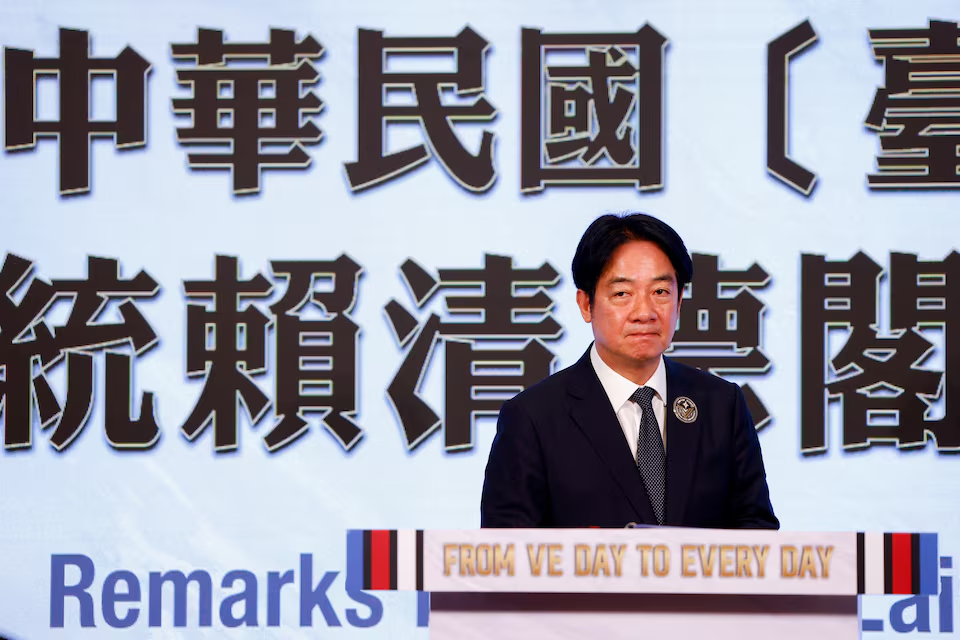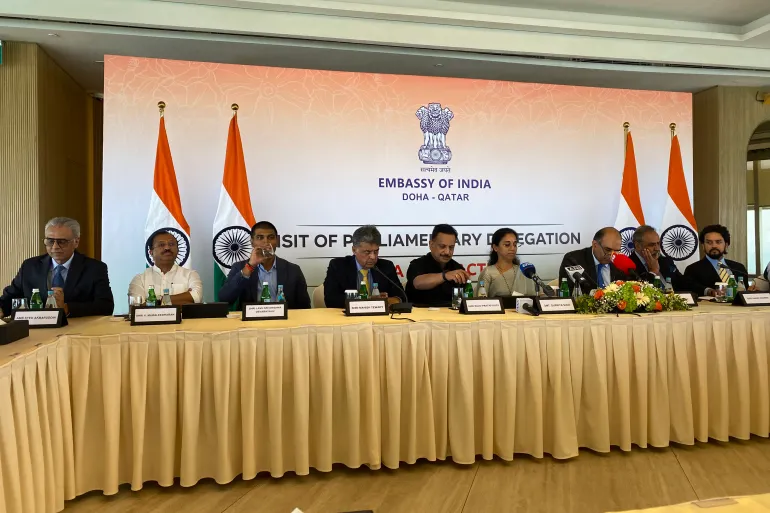Taiwan’s President Lai Ching-te marked the first anniversary of his presidency on Monday by reiterating his willingness to engage in dialogue with China, even as Beijing continues to reject any form of official contact with the self-ruled island. His remarks come at a moment of rising cross-strait tension, with Chinese military activities around Taiwan intensifying and diplomatic ties remaining frozen.
In a speech delivered at the presidential office in Taipei, President Lai emphasized Taiwan’s commitment to regional peace and expressed hope that Beijing would respond positively to his repeated calls for communication.
“We remain open and sincere in our desire to engage in constructive dialogue with China,” Lai said. “The people of Taiwan seek peace, not provocation. Our door to talks has never been closed.”
Since taking office in May 2024, Lai has maintained the Democratic Progressive Party’s (DPP) firm stance on defending Taiwan’s sovereignty, while also striking a more conciliatory tone than some of his predecessors. Nevertheless, China has refused to engage with his administration, labeling him a “separatist” and stepping up military and political pressure on the island.
China views Taiwan as a breakaway province that must eventually be reunified with the mainland, by force if necessary. It has consistently rejected any form of dialogue that does not acknowledge the “One China” principle. In response to Lai’s presidency, Beijing has increased patrols around Taiwan’s air defense identification zone (ADIZ), carried out naval exercises, and conducted cyber operations aimed at destabilizing the government in Taipei.
Despite these provocations, Lai reiterated that Taiwan would not escalate tensions. “We will not bow to intimidation, nor will we act rashly,” he said. “We will protect our democracy while seeking peaceful solutions.”
Lai also used the anniversary address to highlight his administration’s achievements over the past year, including boosting defense capabilities, deepening ties with democratic allies, and strengthening Taiwan’s semiconductor industry—a strategic sector crucial to the global economy.
He acknowledged, however, that the security situation remains fragile. “Taiwan stands on the frontline of authoritarian expansion,” he said. “Our resilience depends not only on our own unity but also on support from the international community.”
The United States, Taiwan’s most important security partner, reaffirmed its support in a statement marking the anniversary. The U.S. State Department praised Taiwan’s commitment to peace and democracy, and reiterated calls for Beijing to “engage in dialogue without preconditions.”
China, however, responded with predictable hostility. A spokesperson for the Taiwan Affairs Office in Beijing dismissed Lai’s remarks as “political theater” and reiterated China’s position that there can be “no negotiation with forces advocating Taiwanese independence.”
Analysts say Lai’s diplomatic balancing act is unlikely to break the current stalemate, but his repeated calls for dialogue are designed to win international support and reinforce Taiwan’s image as a responsible stakeholder in global stability.
“President Lai’s strategy is to show restraint and openness while reinforcing Taiwan’s autonomy and alliances,” said Bonnie Glaser, an expert on cross-strait relations at the German Marshall Fund. “It won’t shift China’s position, but it bolsters Taiwan’s standing abroad.”
Lai concluded his speech by thanking the Taiwanese people for their continued trust and vowed to protect their freedom and prosperity. “Taiwan’s future must be decided by its people,” he said. “We will move forward with confidence, dignity, and determination.”
As tensions with China persist, Lai’s leadership enters its second year with a clear message: Taiwan will not seek confrontation but will not yield in its pursuit of peace, democracy, and self-determination.
Source: Reuters



